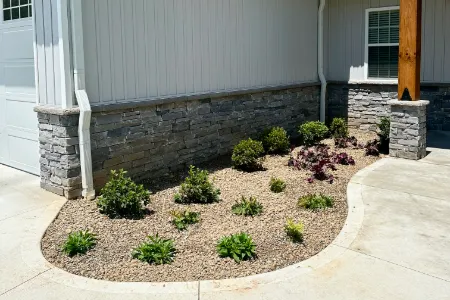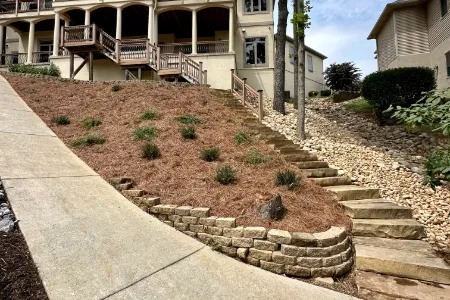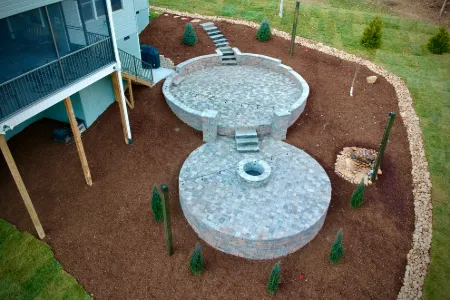Our Clients Love Us!
Here's What They Say
Amazing finished project, and the stone crafter that he used… Joshua was above expectations. He addressed my wants with regard to color and symmetry to match up to existing stone. The connection was flawless. I only wish I had more projects for them to do! I cannot recommend the professionalism and the quality of work enough. You will not be disappointed!!
Property Docktors is GREAT! Sam was friendly and arrived with his team on time. They did a great job and will definitely use them again.
Our experience working with Property Docktors and Sam was fantastic. Sam has great communication skills; he’s quick to respond to questions, quote requests, and contract changes. We shared with him the priorities we set with our plantings – things like low maintenance, deer resistant, drought resistant, flowering, a mix of colors, etc. - and then he used his experience and expertise to recommend the right plants that would thrive in the various light and moisture conditions of our yard. He and his crew showed up when scheduled, first thing in the morning, ready to work quickly and efficiently, and they planted about 140 plants in one day! Of course, this is everything you’d expect from a contractor, but it is not necessarily something others provide. We are very happy with the job Property Docktors did on our yard and would not hesitate to recommend him to our neighbors and friends.
Sam Sparks was a good communicator, always answered us either by text or email and followed up with our requests. He was willing to work with us on the modification of our project to save money. He also suggested better alternatives for the project that we never thought about. Sam was the curliest blonde hair contractor we ever met:)
We just bought a new home and our neighbor was having landscaping work done. We stopped by to see the beautiful stone steps and retaining walls that Property Docktors had installed. We saw that the work was being done with care and the project was finished on time. My husband and I were so impressed we asked for a quote for our yard. We had retaining walls that were not installed correctly, we were in need of stone steps to replace some treacherous railroad tie steps and the yard needed lots of TLC. Sam came to see us and listened to what we needed. He was very helpful in explaining the best way to approach the project. He gave us a proposal within a day and started the project promptly. They started the day they promised and finished the project a day early. The final outcome exceeded our expectations! The retaining walls around our driveway are gorgeous. What a difference it has made to the curb appeal of our home. It went from decent to fabulous. I was expecting it to be great and it was better! When I saw how hard the guys worked to put in the foundations of the walls and dig the steps (as well as planting the shrubs) I knew we had gotten a great deal for the money we spent. I also know that the walls are there to stay with all the work they did with the foundation area. Sam is very easy and wonderful to work with and his crew are lovely. I would recommend these guys to anyone, anytime.
Sam was awesome. He said what he was going to do, and did much faster than I expected. Would hire Property Docktors again, and recommend Sam highly to everyone.

 Property Docktors is a
Property Docktors is a 

